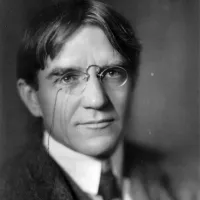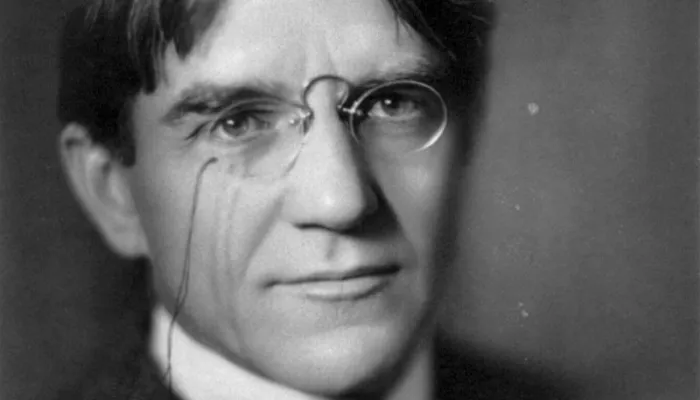A high bare field, brown from the plough, and borne
Aslant from sunset; amber wastes of sky
Washing the ridge; a clamour of crows that fly
In from the wide flats where the spent tides mourn
To yon their rocking roosts in pines wind-torn;
A line of grey snake-fence, that zigzags by
A pond, and cattle; from the homestead nigh
The long deep summonings of the supper horn.
Black on the ridge, against that lonely flush,
A cart, and stoop-necked oxen; ranged beside
Some barrels; and the day-worn harvest-folk.
Here emptying their baskets, jar the hush
With hollow thunders. Down the dusk hillside
Lumbers the wain; and day fades out like smoke.
This lonely poem is about so much more than a bare field.
- Charles Roberts has loaded this poem with vivid imagery. Which images grab you the most? What is so striking about them?
- What does Roberts mean by “day-worn harvest-folk?” What does the speaker tell us about them? What else can you guess about these people that the poem does not say?
- Make a chart of the rhyme scheme. Note where rhymes make a hard stop at the end of the line and where they run through to the next line. Can you find other rhymes that do not fall at the end of lines? Can you find “near-rhymes”?
- Can you identify archaic words in the poem? What do you think these words mean and why do you think the poet used those particular words? Knowing that Charles Roberts died in 1943, what time period do you think he was writing about? What do the archaic words and rustic images convey about time in this poem?
- How would you recite this poem in an interesting way, given that the rhymes don’t always fall where a speaker might naturally pause to breathe?
- This poem depicts a pastoral scene. Who would have thought that so much could be said about a potato harvest? Try writing a pastoral poem. Think about a field or a country road where at first glance it seems that nothing is happening. Include sights or sounds that make the scene feel virtuous or nostalgic.
Useful Links
Take a look at this famous painting by Vincent van Gogh titled “The Potato Eaters.” https://www.vincentvangogh.org/potato-eaters.jsp After reading the “The Potato Harvest,” and then seeing the painting, does it change the way you think of the people in the poem?
Here is an article on the pastoral poem: https://poets.org/glossary/pastoral
Here are links to other pastoral poems at Poetry in Voice: https://poetryinvoice.ca/common-poetic-terms-and-forms/pastoral





